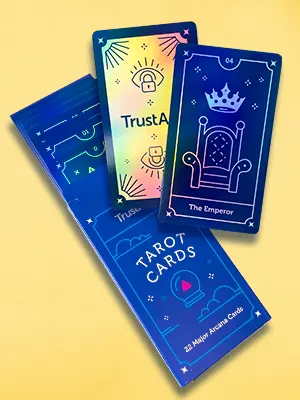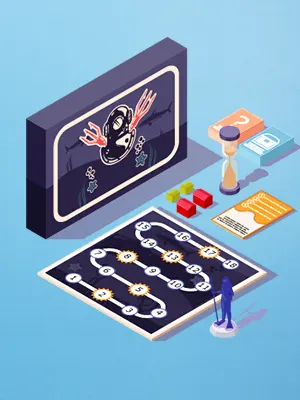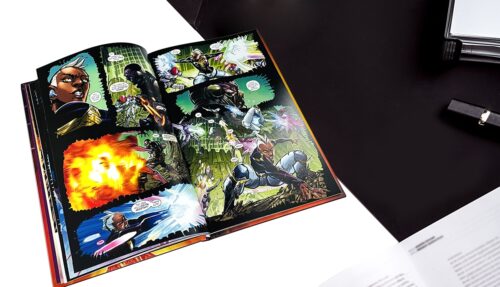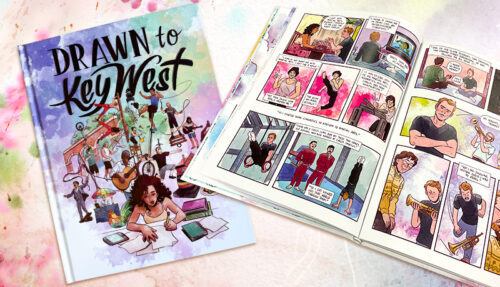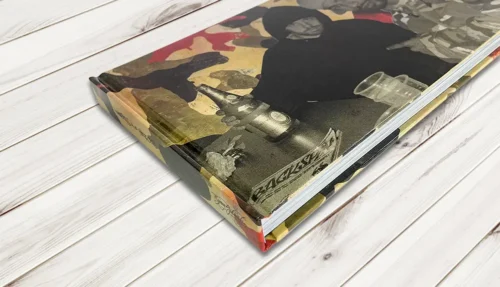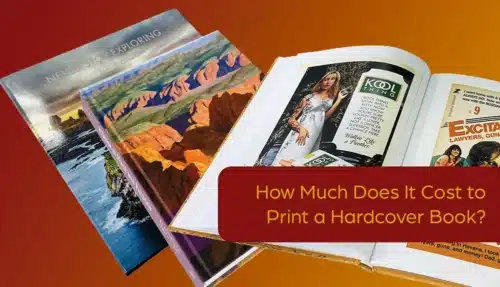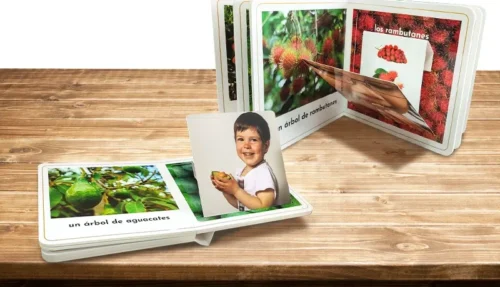A professional librarian shares her best advice for self-published authors who would like to get their books in public libraries

Image: Book Printed by QinPrinting
Thinking about how to get your book into libraries as an independent publisher? At QinPrinting, we work every day with self-published authors to print the finest editions of their books. Many have wondered how to get their books into the library service. It struck us that the best person to ask would be someone who works in the library service!
Eve is a Libraries Manager in a town just south of the beautiful Surrey Hills. As well as managing libraries, Eve boasts a First Class degree, an Advanced Certificate in Proofreading (Distinction), and has successfully completed a course in critical reading at Oxford University. So she seemed to be the perfect person to ask. Eve was kind enough to agree to the following interview.
Interview with a Libraries Manager
QP: Hi Eve. First of all, we know you must be very busy, so thank you for taking the time to offer us your professional insights. May we start by asking exactly what a Libraries Manager does?
Eve: No problem! Thanks for asking me. I’m part of a team responsible for four libraries. We make the schedules, look after the staff, make sure they’re able to do all the book stock / customer service / digital / information business they need to do, implement any changes, plan and deliver training, do outreach work and events, and I spend a chunk of my time working on improvement projects for the service.
QP: Sounds as if you’re a serious multi-tasker! We hear a lot about how difficult it is for indies to get their work into bookstores and libraries. Indies often discount the idea from the outset because they imagine it’s either impossible, or too difficult to be worth the time and effort. So let’s jump straight in and ask what everyone wants to know: is it possible for indies to get books into libraries?
Is it possible for indies to get books into libraries?
Eve: Yes, definitely. Libraries love books! The more the merrier. It’s a great way to reach an audience of keen readers. The main thing to bear in mind is that people working in the library service are super-busy and often over-stretched, so make it as easy for them as possible.
QP: That’s great news. So libraries are likely to be keen to take books. But the implication is that getting your approach right is key to success with this. Okay, so among all those super-busy people, who in the library service should authors and independent publishers approach?
Who should indies contact about placing books in libraries?
Eve: Most library services have an information enquiries email address. They will be able to tell you the process in your area. However, the more direct approach is likely to be fruitful: Go into a branch and donate a copy of your book. There are also ‘stock suggestion’ forms on most library services’ websites, so get a few people to suggest the library service stock your book. Library members may also make requests for books. A formal request for a book carries more weight than a suggestion and obliges the service to acquire it if at all possible.
QP: Fantastic. So, there are three possible lines of approach there:
- use the enquiry desk to find out what your county’s official process is, and then follow through on that
- get a bunch of people to suggest the library stock your book (which sounds like a kind of stealth approach!)
- and just going right in to a branch and donating your book
Aside from doing a nationwide tour, if you want to get books out to more than your local libraries, it seems it’s best to take a county-level approach. Most indies won’t be able to afford to donate hundreds of copies, so it would be a case of getting the library service to buy them in. Can you tell us who is responsible for buying stock and how that works?
Who is responsible for buying library stock?
Eve: Stock is usually bought by a central stock team for the whole county — the people working in your local branch are unlikely to have much to do with this. In my area the sections are split between a few individuals in the stock team e.g. one person buys all the SF, gardening and sport books for every library in the county.
QP: So again, you can find out who’s responsible for what via the county library website and then approach the best person for your genre or title.
With a limited budget, decision-makers in the stock department must have to be very selective about which books they spend their money on. When thinking about how to get your book into libraries as an independent publisher, are there any factors that can give you the edge? Can you tell us what considerations librarians take into account?
How do librarians decide which books to buy?
Eve: There is a limited budget, so money will be spent on what is going to be popular. They read reviews in the main papers and online, as well as publications from publishers.
QP: That’s good to know. So getting your books in the catalogs with Ingram in the US, or Nielsen in the UK, for example, is probably good groundwork. And reviews in Kirkus, Publisher’s Weekly, or even high-level book blogs in your genre wouldn’t hurt.
Okay, so drilling back down to the local approach, you suggested donating copies. In fact, you seem to recommend it. Can you explain a bit more about how that works?
Do libraries accept book donations?
Eve: Yes — and I’d say this is the best way to get your books in.
We get them relatively often — the last few we’ve taken in at our branches have been a set of four tomes about the local rugby club (finished posthumously by the author’s widow), a collection of poems about living with Alzheimer’s, and a children’s book about kestrels, lovingly illustrated by the author.
If your initial donation issues really well, the stock team will see that and may buy further copies. You may well be asked to sign a form saying you don’t mind what happens to your book, which would include it being circulated to other branches, and it might end up in a book sale to raise library revenue, once it’s lived out its life as a loaned item.
It might take a little while between you donating your book and appearing on the shelves, so don’t take your whole family in for a viewing the next day. Libraries usually use one or two suppliers for their stock, who create all the catalog records. As your book hasn’t come in this way, it will need to be sent to the stock team to have a catalog record created, which can take a little time.
QP: Great. So if books you donated to a couple of libraries are popular with readers, that will *ping* with the stock team and may lead to purchasing and wider distribution of books throughout the county. Potentially, donating one book to each county could lead to country-wide distribution.
Eve: Yes, but it’s a question for the team in your county. As stock is arranged centrally, county-wide distribution is certainly an option. Getting into libraries across your county is a great idea. The more readers you have, the more buzz you’re creating.
QP: Many libraries now lend eBooks — is that easier for indies to get into?
Can indies get ebooks into libraries?
Eve: I’m no expert in this area. Ebooks are usually hosted by contracted suppliers and I’m not sure how we add books that aren’t included by those services. I know it can be done, but I get the impression from Digital that it’s not the most straight-forward process. It’s worth asking about in your local authority.
QP: Are libraries open to hosting author events with indie authors?
Do libraries host talks, readings and workshops by indies?
Eve: Yes, absolutely. In my experience these events are popular and well-attended. They’re also a great place to sell lots of copies of your books.
Offering at your local branch would be a good first step. How this works varies in different services — in some it will be arranged by a local management team, in others there is a central team that plans events. Arrange a meeting with someone from the management team, if you can. Showing that you’re professional and have a plan for what a session might look like will get you far.
If you haven’t yet reached the heights of fame where your name alone is a pull, a workshop is always a good idea.
Again, library services are often overstretched so offer to do as much as you can yourself in the way of promotions and preparations.
QP: So it would be worth getting a professional package together with posters, leaflets, press-releases and all that, coupled with an outline of what you would do and who it would benefit, to present the library with a slick-looking fait accomplis. And emphasize the value you’re giving to the library and its community rather than pushing your books.
If you don’t have reviews in the mainstream publishing magazines and you’re not in the big catalogs, do you think a library tour would be a good first step to getting libraries to stock your books?
Are library tours worthwhile for authors?
Eve: Yes! If you’re going to do an event, the stock team will buy a set of your books to loan and promote in the period leading up to your event. If you’re thinking about how to get your book into libraries as an independent publisher, it’s probably the best way to ensure that the library stocks your work!
QP: That’s neat. So, there’s no reason why indie authors shouldn’t get their books into libraries as a matter of routine, so long as they have a helpful, professional approach, talk to the right people, and offer good value to libraries and their communities.
Thank you so much for talking to us, Eve. You’ve been fantastic.
Eve: Thanks for having me!
Either way, paid or not, getting your books into libraries is a great way to spread the word and become more widely known. If you’re a children’s author it’s probably essential in order to reach your target audience.
Talk to us!
To get your books into libraries, you’ll need offset printed editions to take along in person. At QinPrinting, we have over 25 years’ experience working with self-published authors and independent creatives. Our global reputation for excellence is built on our knowledgeable expertise, state-of-the-art printing technology, and a commitment to high-quality customer service. Not to mention unbeatable prices on the most beautiful books you’ll ever see! We’d love to talk to you about your next book and what we can do to help. Let’s talk!


